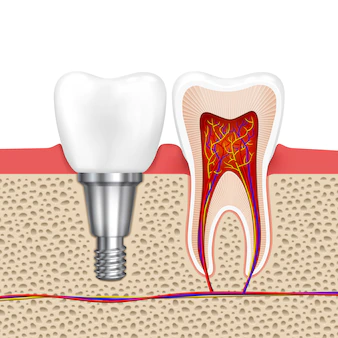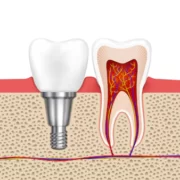Dental implants are a popular and effective way to replace missing teeth. They’re made of titanium, and they’re inserted into the jawbone to act as a replacement for the root of a tooth. Dental implants are considered a safe and successful procedure, but like all surgeries, there are some risks involved. One of the most common complications of dental implants is immediate bleeding.
This can happen when the implant site is not properly prepared or when the implant is inserted into an area that has active bleeding. Immediate bleeding can also be caused by trauma to the implant site. In this article, we’ll explore the causes and symptoms of immediate bleeding complications in dental implants. We’ll also give you some tips on how to avoid them.
Introduction
When you have dental implants placed, you should know that there is a very small risk of immediate bleeding complications. These are not major, life-threatening injuries, but they can be quite painful. And although they are very rare, it is important that you know the signs and symptoms, so you can get help as soon as possible if you experience any bleeding. Immediate bleeding complications in dental implants can happen if the site of insertion is not properly prepared. You can also experience immediate bleeding if you have active bleeding in the area where the implant is being inserted.

Causes of immediate bleeding complications in dental implants
- The bone-graft-to-implant ratio refers to the amount of bone that needs to be present to ensure the implant is stable. If the amount of bone isn’t high enough, the implant may not be held in place properly. This can cause immediate bleeding.
- The bone-graft-to-implant ratio refers to the amount of bone that needs to be present to ensure the implant is stable. If the amount of bone isn’t high enough, the implant may not be held in place properly. This can cause immediate bleeding.

- A lack of blood flow- You need a good amount of blood flow to the jawbone for the implant to be held in place. If there isn’t enough, the implant may not be stable, causing immediate bleeding. You need a good amount of blood flow to the jawbone for the implant to be held in place. If there isn’t enough, the implant may not be stable, causing immediate bleeding.
- Incorrect insertion technique- Improper insertion of the implant can lead to immediate bleeding. Improper insertion of the implant can lead to immediate bleeding. Traumatic insertion- If the implant is inserted too quickly or with too much force, it can cause immediate bleeding.
- Active bleeding in the area- If there is active bleeding in the area where the implant is being inserted, immediate bleeding may occur.
Symptoms of immediate bleeding complications in implants
Immediate bleeding complications in dental implants can be very obvious. You’ll likely see blood at the site of insertion, and you may even see blood coming from your mouth. You may also experience pain at the site, along with swelling and a fever. If your gums have retracted from the site, it may look like someone has punched you in the mouth. You may also be able to see the titanium of the implant sticking out from the gums. You may also see the tissue around the wound becoming dark and swollen.
Treatment for bleeding complications in dental implants
Immediate bleeding complications in dental implants may require some form of treatment. The first thing you should do is rest the area that has bled, especially if you have active bleeding. It is also important to keep the area clean. You can do this by rinsing with salt water and applying gauze and antibiotic ointment. It is also important to speak to your dentist about the best way to treat your injury. If the bleeding is significant, you may need antibiotics, a blood transfusion, or a surgical procedure to stop the bleeding.

Prevention of immediate bleeding complications in dental implants
Preventing immediate bleeding complications in dental implants can be tricky because there are so many factors that can contribute to bleeding. However, there are a few things you can do to lessen your risk of bleeding. Make sure you have completed your dental health regimen at least six months before the implant procedure. This is the recommended time for your gums to heal after a vigorous dental cleaning. It is also important to make sure your gums are healthy before you have dental implants. You can do this by visiting your dentist every six months to get a cleaning and an evaluation of your gum health.
Conclusion
Immediate bleeding complications in dental implants are very rare, and many dentists will tell you that they are worth the risk. Having an implant instead of a denture will allow you to eat and speak with ease and allow you to keep your natural teeth for as long as possible. It is important to know the signs and symptoms of bleeding so you can get help as soon as possible if you experience this complication. You can also take steps to reduce your risk of bleeding by making sure your gums are healthy and you have completed your dental health regimen.






